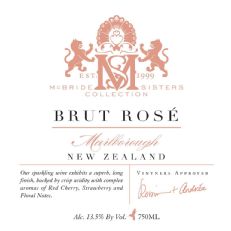Sign In Chef

By using our free meal planner (and the rest of spoonacular.com) you have to agree that you and only you are responsible for anything that happens to you because of something you have read on this site or have bought/cooked/eaten because of this site. After all, the only person who controls what you put in your mouth is you, right?
Spoonacular is a recipe search engine that sources recipes from across the web. We do our best to find recipes suitable for many diets — whether vegetarian, vegan, gluten free, dairy free, etc. — but we cannot guarantee that a recipe's ingredients are safe for your diet. Always read ingredient lists from the original source (follow the link from the "Instructions" field) in case an ingredient has been incorrectly extracted from the original source or has been labeled incorrectly in any way. Moreover, it is important that you always read the labels on every product you buy to see if the product could cause an allergic reaction or if it conflicts with your personal or religious beliefs. If you are still not sure after reading the label, contact the manufacturer.
We also attempt to estimate the cost and calculate the nutritional information for the recipes found on our site. Again, we cannot guarantee the accuracy of this information. Additionally, our nutrition visualizer that suggests that you limit sodium, sugar, etc., and get enough protein, vitamins, and minerals is not intended as medical advice. Similarly, our health tips are based on articles we have read from various sources across the web, and are not based on any medical training. The team behind spoonacular does not possess any medical qualifications and the information may be found to be incorrect or out of date based on future research. If you need help planning your diet or determining which foods (and recipes) are safe for you, contact a registered dietitian, allergist, or another medical professional.
Spoonacular is not responsible for any adverse effects or damages that occur because of your use of the website or any information it provides (e.g. after cooking/consuming a recipe on spoonacular.com or on any of the sites we link to, after reading information from articles or shared via social media, etc.)
×$2.46 per serving

1 likes

Ready in 1 hour and 30 minutes

Spoonacular Score: 63%
You can never have too many hor d'oeuvre recipes, so give Sweet Roasted Butternut Squash Soup a try. For $2.46 per serving, this recipe covers 30% of your daily requirements of vitamins and minerals. One portion of this dish contains around 6g of protein, 29g of fat, and a total of 496 calories. This recipe serves 2. It can be enjoyed any time, but it is especially good for Autumn. This recipe is liked by 1 foodies and cooks. It is brought to you by Foodista. It is a good option if you're following a gluten free, lacto ovo vegetarian, and primal diet. A mixture of butternut squash, pepper, water, and a handful of other ingredients are all it takes to make this recipe so delicious. From preparation to the plate, this recipe takes approximately 1 hour and 30 minutes. With a spoonacular score of 53%, this dish is solid. If you like this recipe, you might also like recipes such as Sweet Spiced Roasted Butternut Squash Soup {Vegan}, Sweet Spiced Roasted Butternut Squash, and Butternut Squash And Sweet Potato Soup.
Sparkling Wine and Sparkling rosé are great choices for Antipasti. If you're serving a selection of appetizers, you can't go wrong with these. Both are very food friendly and complement a variety of flavors. The McBride Sisters Brut rosé with a 4.8 out of 5 star rating seems like a good match. It costs about 24 dollars per bottle.
 This sparkling wine exhibits a superb, long finish, backed by crisp acidity with complex aromas of red cherry, strawberry and floral notes.
This sparkling wine exhibits a superb, long finish, backed by crisp acidity with complex aromas of red cherry, strawberry and floral notes.
» Get this wine on Wine.com








































Read the detailed instructions on Foodista.com – The Cooking Encyclopedia Everyone Can Edit